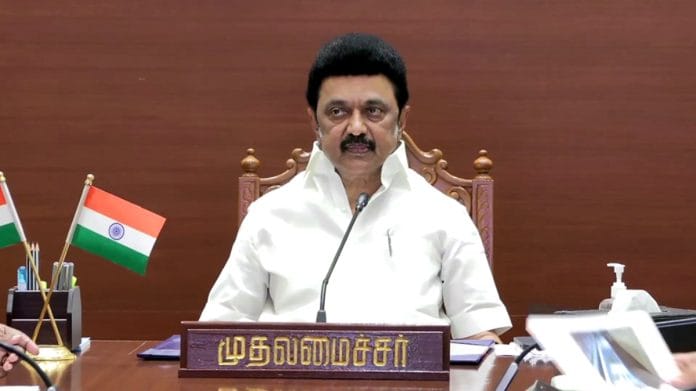Chennai: The Tamil Nadu government has backtracked on a Rs 675 crore hydrocarbon exploration project by Oil and Natural Gas Corporation (ONGC), initially granting environmental clearance in March, and then deciding to revoke it after five months.
The reversal stems from a policy decision by Chief Minister M.K. Stalin after taking office in 2021 to prohibit hydrocarbon projects across the state, which the environment department had overlooked when clearing the ONGC proposal.
Tamil Nadu Minister Thangam Thennarasu has instructed the State Environment Impact Assessment Authority (SEIAA) to revoke the clearance given to ONGC for drilling 20 onshore exploratory wells in Ramanathapuram district.
The decision came after the Department of Environment was informed about the government’s policy decision when the Dravida Munnetra Kazhagam (DMK) came to power in 2021. According to environment department officials, the SEIAA will revoke the clearance given to ONGC at its next meeting.
“Since the Protected Agricultural Zone Act 2020 covers only the Cauvery Delta region, the clearance was given to the exploratory wells in Ramanathapuram, which falls in the southern part of the state,” an SEIAA official told ThePrint. “However, we learnt that there was a policy decision on a blanket ban on such exploratory wells across the state and it will be revoked as per the minister’s instruction.”
ONGC is yet to take a call on the next course of action. A spokesperson of the corporation told ThePrint that it was monitoring the developments. “We have learnt that the state government has decided to revoke the environmental clearance. We are working with the state government and are yet to decide on the next course of action in this regard.”
Environmental activists said that the state had earlier banned such hydrocarbon extraction even outside the Cauvery delta region, citing environmental concerns.
Thennarasu’s announcement comes after sustained protests by fishermen, farmers, political parties and environmental activists who said the move would affect their livelihoods, underscoring how hydrocarbon extraction remains a deeply contested issue in the state.
Tamil Nadu SEIAA had cleared the project on 11 March, allowing ONGC to drill 20 onshore exploratory wells in a 1,403 sq km block in the Ramnad sub-basin. The project involved digging wells as deep as 3,000 metres, each costing tens of crores of rupees and raising concerns about potential environmental impact.
The block is close to sensitive ecological zones, including the Gulf of Mannar Marine National Park, bird sanctuaries and agricultural lands that sustain local communities.
G. Sundarrajan, convener of environmental protection group Poovulagin Nanbargal, recalled how Stalin had reasserted that no new hydrocarbon projects would be allowed anywhere in Tamil Nadu, but his own government forgot the promise.
“It was in June 2021 that ONGC submitted an application seeking environmental clearance for 10 exploratory wells in Ariyalur district, which is outside of the Cauvery Delta region. Then, the chief minister reasserted that no new hydrocarbon projects would be allowed anywhere in the State,” Sundarrajan told ThePrint. “But, they forgot the policy decision and gave environment clearance in March this year.”
He also said that the chief minister had formally written to Prime Minister Narendra Modi to scrap existing projects in places such as Vadatheru in Pudukkottai.
Also Read: From Chennai, Mann vows ‘immediate steps’ to start breakfast scheme in Punjab govt schools
A history of agitation over hydrocarbon projects
This is not Tamil Nadu’s first brush with hydrocarbon extraction controversies. Several past attempts to explore oil and gas have triggered fierce resistance, making the state a politically sensitive space for such ventures.
In 2012-13, Great Eastern Energy Corporation Limited proposed extracting coal-bed methane (CBM) in Mannargudi in Tiruvarur district in the delta region. Farmers feared the project would lead to saline water intrusion into their farmlands and ruin paddy cultivation.
The All Farmers Associations of Tamil Nadu Coordination Committee president, P.R. Pandian, said the project was suspended after huge protests by the farmers. “That was the first major push by these companies to exploit the farmlands. Only after that protest, farmers became aware of such projects and we started coordinated protests against ONGC and other such companies,” said Pandian.
Another major protest erupted in 2017 in Neduvasal village in Pudukkottai district, where villagers and farmers opposed exploration activities, fearing irreversible damage to their agricultural lands.
Beginning in February 2017, the Neduvasal protest brought attention to Tamil Nadu’s ecological concerns and the importance of farming in the delta region. The Centre had auctioned a hydrocarbon block under the Discovered Small Fields (DSF) policy to Gem Laboratories.
Subsequently, in June 2017, villagers in Kathiramangalam in Thanjavur district reported a gas leak from an ONGC pipeline in the village. This was the protest that pushed the then AIADMK government to declare the Cauvery Delta region a “no-go zone” for such extractive projects.
(Edited by Sugita Katyal)
Also Read: Why DMK’s handling of Chennai sanitation workers’ protest is causing strain in ruling alliance






